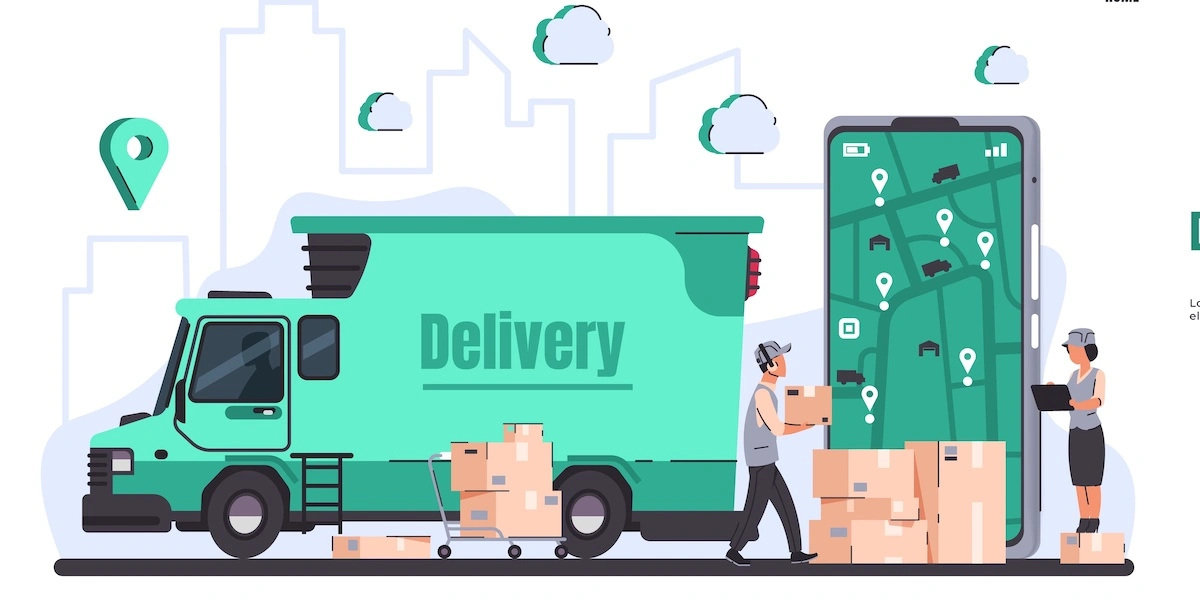For businesses involved in distribution, timely deliveries are not just a luxury—they’re essential. Whether you’re delivering products for an e-commerce business, managing a fleet of delivery vehicles, or ensuring efficient service for a retail chain, improving delivery efficiency can make a world of difference.
Route optimization is one of the most impactful tools to achieve this.
But what exactly is route optimization, and how can it help businesses address common delivery challenges? Let’s dive deep into this technology and explore how it can make a significant difference in your logistics operations.
Understanding Route Optimization
Route optimization is the process of determining the most efficient routes for delivery vehicles to take in order to minimize costs and time. It uses advanced algorithms and data analysis to consider factors such as distance, traffic patterns, delivery time windows, and fuel consumption. By identifying the quickest and most cost-effective routes, businesses can reduce travel times, lower operational costs, and improve fleet management.
The goal of route optimization is to streamline logistics operations by ensuring that vehicles take the best possible paths to complete deliveries. This is achieved through real-time analysis of various variables, including road conditions, weather, and traffic updates. Route optimization not only reduces fuel consumption but also increases the overall productivity of delivery operations by allowing businesses to make more deliveries within a given timeframe.
By optimizing delivery routes, businesses can also enhance customer satisfaction by ensuring that products arrive on time. With reduced delays, fewer missed delivery windows, and improved overall efficiency, companies can meet their service-level agreements and build stronger relationships with their customers. As a result, route optimization contributes to both operational cost savings and improved customer experiences.
Common Problems Businesses Face Without Route Optimization
In the absence of route optimization, many businesses struggle with inefficient delivery processes that affect their bottom line and overall customer experience. These problems include:
1. Increased Operational Costs
Inefficient routes lead to unnecessary fuel consumption and higher vehicle maintenance costs. Longer travel distances, frequent stops, and excessive idling add up quickly.
2. Missed Delivery Windows
When routes aren’t optimized, delays become inevitable. Missed delivery deadlines not only frustrate customers but also impact your business’s reputation and customer loyalty.
3. Overworked and Underutilized Fleet
Without effective route management, businesses may end up underutilizing their fleet, leading to wasted resources. Conversely, drivers may also be overburdened, which can lead to delays and burnout.
4. Environmental Impact
Excessive fuel consumption and longer delivery times contribute to a larger carbon footprint. As businesses increasingly focus on sustainability, inefficient delivery systems become a significant drawback.
5. Lack of Flexibility
Unexpected events, such as traffic jams, weather conditions, or last-minute delivery requests, can throw off an entire day’s schedule. Without route optimization, businesses have limited flexibility to adapt to such changes.
How Route Optimization Can Solve These Problems
By using route optimization, businesses can resolve these challenges and reap several benefits:
1. Cost Savings
One of the most significant advantages of route optimization is the reduction in fuel and maintenance costs. By minimizing travel distance and improving delivery schedules, businesses can save a considerable amount of money. Additionally, optimized routes can reduce the need for additional vehicles, leading to lower overhead costs.
2. Improved Delivery Times
Route optimization ensures that drivers follow the best routes, reducing the risk of delays. By considering real-time traffic conditions, weather, and construction zones, optimized routes help ensure that deliveries are made on time, improving customer satisfaction.
3. Better Resource Utilization
Optimized routing enables businesses to make full use of their vehicles and drivers. By determining the best routes based on capacity and delivery windows, businesses can ensure that their fleet is operating at maximum efficiency.
4. Sustainability
With the increasing focus on sustainability, optimizing delivery routes helps businesses reduce their carbon footprint. Fewer miles traveled and less fuel consumption contribute to a greener operation, which is not only good for the environment but also aligns with eco-conscious customer values.
5. Adaptability to Changes
Modern route optimization solutions provide real-time adjustments, allowing businesses to adapt on the fly. If traffic conditions change or an urgent delivery needs to be accommodated, route optimization algorithms can quickly recalibrate the schedule and suggest alternative routes.
The Technology Behind Route Optimization
Route optimization is powered by several advanced technologies that work together to improve logistics operations. These technologies include:
-
- Artificial Intelligence (AI): AI algorithms analyze vast amounts of data, including traffic patterns, weather forecasts, and delivery schedules, to predict the most efficient routes. AI continuously learns and improves, becoming more accurate over time.
-
- Global Positioning System (GPS): GPS technology allows real-time tracking of delivery vehicles, ensuring that the most accurate information is used to optimize routes based on actual conditions.
-
- Cloud Computing: With cloud-based systems, route optimization tools can integrate seamlessly with business operations, allowing businesses to access real-time data and adjust plans from anywhere.
-
- Big Data Analytics: Route optimization solutions gather data from multiple sources, such as traffic reports, historical delivery information, and fleet data. This information helps refine the route planning process and ensures that decisions are data-driven.
- Mobile Apps: Delivery drivers are equipped with mobile apps that provide real-time updates, route guidance, and live tracking. These apps ensure that the drivers stay informed and can make adjustments as necessary.
Conclusion: Why Route Optimization Matters for Your Business
In today’s fast-paced logistics landscape,
route optimization is a critical tool for any business looking to improve delivery efficiency. Whether you’re trying to reduce costs, improve customer satisfaction, or enhance sustainability, route optimization provides the solutions you need.
At
FlexHub, we offer state-of-the-art route optimization solutions that integrate seamlessly with your logistics operations. We offer real-time tracking, smart route adjustments, and cost-saving benefits, helping you streamline your distribution process and achieve greater operational efficiency.
If you’re ready to take your delivery operations to the next level,
FlexHub is here to help. Let us handle the complexities of route optimization while you focus on what matters most—growing your business.

